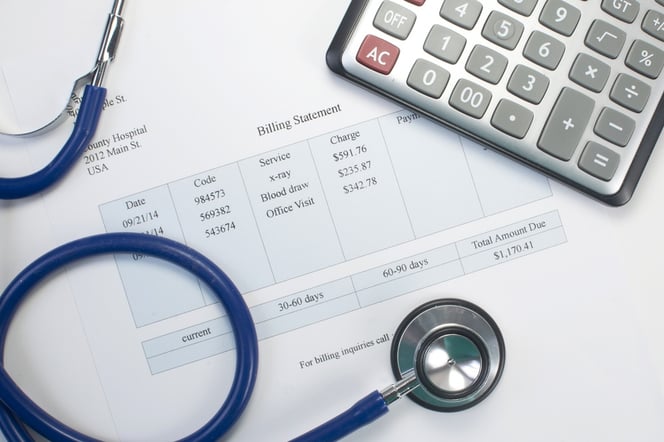Asking for money - even when the bill is overdue - is never enjoyable. While it can be unpleasant collecting payment from patients, it is essential for the ongoing success of your practice.

The next time an outstanding balance is due, consider the following 7 tips to improve the collection process and increase revenue.
1). Train your staff - Make sure your staff is properly trained to handle the healthcare collections process. Employees should be able to look up patients’ accounts with ease.
When checking in patients, medical staff can look for an outstanding balance as they confirm insurance and demographics. This gives them the perfect opportunity to remind patients of overdue bills and ask for their preferred method of payment.
It is critical that staff members avoid asking a yes or no question when discussing a past-due balance. Patients typically answer “no” and delay the payment process. It is far better to ask if the patient would rather pay by check or credit card.
2). Offer additional payment options - If your patients want to pay their bills but can’t pay the entire bill upfront, setting up a payment plan is a viable alternative. When a large bill is owed, a payment plan can ensure regular payments are being made towards the overall balance.
3). Prompt bill payment in appointment reminders - When staff contact patients regarding an upcoming appointment, have them remind patients of an overdue payment and outline the available payment options. Let them know that the outstanding balance must be settled before their next appointment or when they arrive at the office.
4). Be upfront with patients about pricing - Your patients may not realize the cost of the procedures they’re undergoing and, therefore, cannot determine if it fits within their budget. That’s why it’s important to keep the patient informed of all medical expenses.
To increase the chances of medical bills getting paid, be as transparent as possible about pricing. Be sure to check their insurance coverage before consultation to see if the services are covered and to what extent. Make it clear when they will be paying out-of-pocket and try to give them a financial estimate.
5). Schedule regular meetings to discuss finances - Use these meetings to review payment collections and discuss room for improvement. You should aim to meet at least monthly to track and manage results. This way, you can analyze your progress and decide what methods are working and which aren’t.
6). Contact slow payers more often - If you have patients with a history of not paying their bills on time, it is in your best interest to contact these individuals more frequently. Instead of calling them the standard once a month, you could try calling them once a week or at a frequency that works for your staff. Remember to only contact them during business hours and treat them respectfully.
7). Motivate your billing staff - Constantly following up on overdue payments can be a tiresome process. Starting an incentive program is a great way to encourage staff members. You could offer employees a prize after they collect so many payments or host a monthly competition.
Collecting past-due patient balances will never be a painless procedure, but that doesn’t mean you can’t simplify the healthcare collections process. Help your staff handle challenging payment situations and unresponsive patients with the above techniques.





